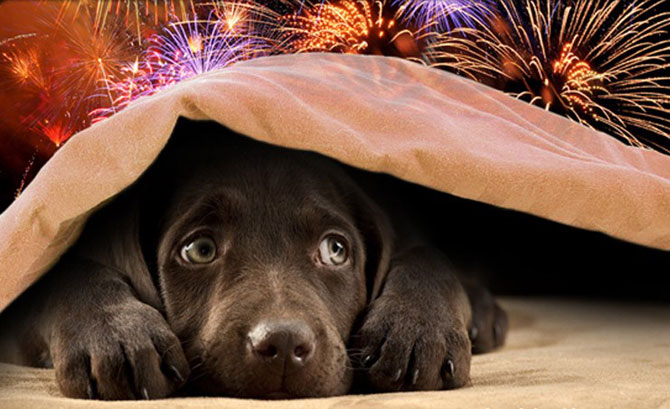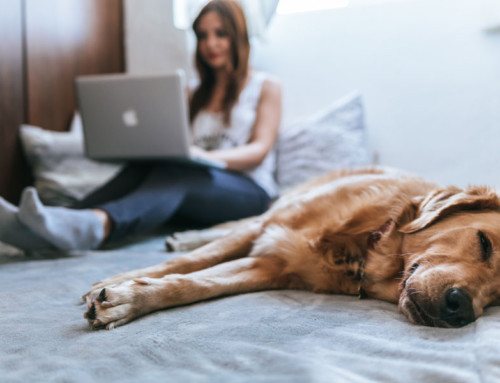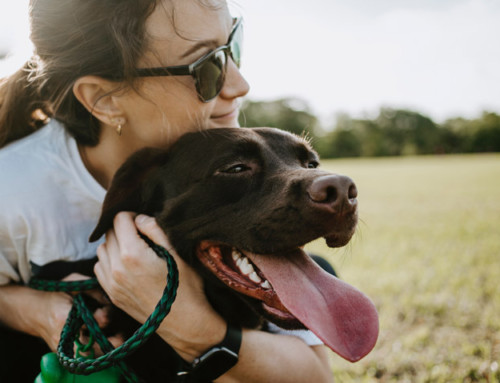Sure, we love to welcome in the New Year with a host of celebrations. We might even include some fancy fireworks into the party mix. However, if you have a furry friend, New Year’s Eve pet safety should be top of mind.
Without a doubt, 2020 has been a crazy wild year and it’s likely that many people are glad to see the back of it. So when it comes to welcoming in the New Year, you might want to pull out all the stops and celebrate in style. But before you start your party planning, don’t forget that fireworks, lights, loud noises and unfamiliar people can cause stress for our four-legged friends.
Keep New Year’s Eve pet safety top of mind
To make certain our canine chums and feline friends don’t suffer during the celebrations, here are a few tips to keep them feeling safe and secure.
First and foremost, preparation is key when it comes to New Year’s Eve pet safety. The better you plan the more assured you can be that your pet is not going to be found cowering in a corner. Got a piece of paper ready? Here are a few points to add to your checklist.
Make certain your pet has a safe place to hide
Choose a quiet room at the front of the house (if your guests are going to be in the back yard), a cupboard, or some other place your pet feels safe. Finding a peaceful and comfortable place where your pet is happy to hangout is key to helping your fur pal feel calm.
It’s a good idea to guide your pet to this safe space before your guests arrive. Spend some time with them. You can give them a soothing massage, talk quietly to them, or simply give them a cuddle.
Check your yard and home to ensure it’s secure (no escape routes)
When considering New Year’s Eve pet safety, don’t forget to make absolutely certain your house and garden are safe and secure. The last thing you want to be dealing with on New Year’s Eve is an escape cat or dog!
Check for holes in fencing and, if possible, keep your pet secured (perhaps in a crate or on a lead) while friends are arriving. This will stop your beloved pet from sneaking out the front door to avoid the hullabaloo.
Consider employing a pet sitter
If possible, it’s a really good idea to either pay a pet sitter or ask a friend or one of your children to look after your pet for the evening. This way, you can relax knowing your cat or dog is being well cared for.
Of course, an alternative option is to ask a friend or family member who is planning on having a quiet New Year’s Eve to have your dog at their house. This way, not only is your pet going to be well cared for but also there will be less loud noises and unfamiliarity to frighten him.
Desensitise your pet
If you know your dog gets scared when he hears fireworks or he’s fearful when there are unfamiliar people around, you could try desensitisation.
Whether you’re trying to desensitise your pet to groups of unknown people or the sound of fireworks, take things slowly. For fireworks, you can download apps to your phone that will play firework-related noises. The trick is to play the noises while giving your dog positive reinforcement, such as lots of cuddles and belly rubs or a treat.
Gradually, over time you can turn up the volume. However, only increase the volume when your dog appears calm and relaxed. If he starts to act frightened or anxious, you may have to take a step back.
It’s the same principle when exposing your dog to people he doesn’t know. Start with just one person and reward him for good, calm behaviour and build it up. Eventually, you should be able to take him into a big group of unknown people without him suddenly becoming anxious.
Pre-party care and attention
In the lead up to the big night, it’s important to keep your pet feeling happy and healthy. Yes, I know you do this anyway, but perhaps pay extra care.
Make sure your pet is eating a nutritious meal, give them lots of exercise (but don’t overdo it!) and show them just how much you love them. A pet who feels safe and loved is likely to respond much more positively to a potentially stressful situation – such as a big party.
Know the telltale signs of stress
Finally, when it comes to New Year’s Eve pet safety it’s really essential to be able to recognise when your dog or cat is feeling anxious or unhappy.
Signs of stress in dogs include:
- Pacing
- Trembling
- Excessive licking
- Panting more than normal
- Constant barking
- Whining
Signs of stress in cats include:
- Not using their litter tray
- Hiding
- Showing aggression, such as swiping at people or hissing
- Excessive meowing
- Flattening of the ears and arched back
- Trembling
There’s no denying New Year’s Eve can be super stressful for pets, but it doesn’t have to be. If you are well prepared and you keep a close eye on your fur pal during the evening things shouldn’t go awry.
Hopefully, you and your furry friend will wake up on New Year’s Day feeling safe and happy (so long as you didn’t overdo the champagne the night before!).
Wishing you a happy and healthy 2021!
Image source: vetmed.com.au







Hello. Thank you very much for such a great article. Like many pet owners, I don’t want my pets to be stressed out by the holidays. It’s especially hard for me to watch my dog is afraid of fireworks that other people launch on the street, and I don’t want my dog to feel bad about it. Thanks for such great advice on how to train your dog to the sounds of fireworks, I will definitely try it with my dog. And I also think that we shouldn’t leave our pets alone because it’ll definitely help them feel better and safer.